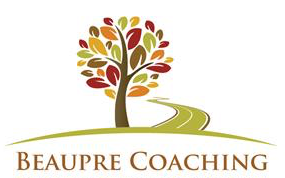Losing Weight after 60. Three Things to Avoid if you are an Emotional Eater.
/Do you hide from your emotions?
Do allow yourself to be changed by your emotions? I know I don’t like to show people when I change. I sometimes hold a mask up to the world to hide feeling inadequate, shame or other negative emotions. Shouldn’t I have it all together already?
How often are we hiding and running from our emotions?
If you are an emotional eater, you use food to distract you from feeling uncomfortable emotions. Even though you know that each bite brings you closer to disappointment, which feels even worse.
My clients come to me to be free from anxiety and stress. We don’t want to feel anxiety and negative emotions. We want them to disappear. I get it. I don’t want to face my own feelings that result from my thoughts of not being enough. It feels shitty.
The problem with emotions is not that we feel shitty, but that we really don’t know how to process our emotions. As a result, we intensify the negative consequences by not feeling our emotions and instead resist or react to the negative emotion or we distract ourselves.
I guarantee that doing one or all of these 3 things will not make your life better.
If you are not feeling your emotions, you are likely doing one of the following:
1. Resisting our emotion. When our thoughts about something raises fear or anxiety, our sympathetic nervous system releases chemical/hormonal messengers that create changes in our body and we experience them as vibrations. Instead of allowing these vibrations to flow through us or play themselves out, we tense up even more and resist them. It is like we are trying to keep ourselves encased in a safety bubble and we do anything to keep the emotion outside the bubble. This takes all our attention and creates lots of tension. With our attention and tension focused on resistance, we don’t allow ourselves to be affected by the emotion.
2. Reacting to our emotions. Another strategy that keeps emotion outside the bubble of protection is to react to them. We throw our attention outside ourselves and focus on the external world. We yell at the customer service representative; we blame our sister-in-law for our distress; in other words, we judge others as the cause of our emotions. We keep the emotion outside the bubble and we are safe. We are not changed by the emotion.
3. Distracting ourselves from our emotions. This is a popular “consumer” based strategy. Consume food, alcohol; watch TV and video games; we go shopping and make purchases. Anything to keep the focus away from our emotions. Distraction is the jackpot for emotional eaters. This strategy has serious negative consequences. We gain weight, even to the point of approaching diabetes and obesity. We stay up late watching Netflix and spend our work day dragging, unfocused and not getting our work done. We go into debt from unnecessary shopping and have trouble planning for a vacation or paying off a critical bill. This keeps us safe from the emotion, but ravaged by the distraction.
Do Not Resist, Do Not React and Do Not Distract.
What then? Stay tuned.


